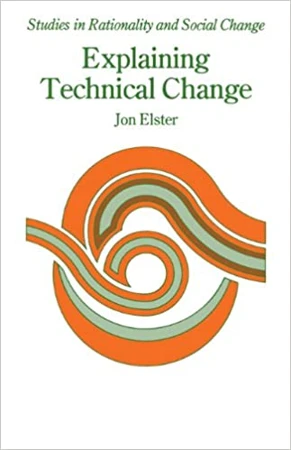Explaining Technical Change – A Case Study in the Philosophy of Science

Blurb
Technical change, defined as the manufacture and modification of tools, is generally thought to have played an important role in the evolution of intelligent life on earth, comparable to that of language. In this volume, first published in 1983, Jon Elster approaches the study of technical change from an epistemological perspective. He first sets out the main methods of scientific explanation and then applies those methods to some of the central theories of technical change. In particular, Elster considers neoclassical, evolutionary, and Marxist theories, whilst also devoting a chapter to Joseph Schumpeter's influential theory.Book summary
Technical change is one of the most relevant economic phenomena and occupies an eminent role in both orthodox and heterodox economic thought. In this book, Jon Elster gives an overview of the most prominent theories to explain technical change, namely neoclassical, Schumpeterian, evolutionary and Marxist theories and dissects their specific explanation attempt from the perspective of the philosophy of science. Through this perspective, the reader is able appreciate the specific type of causal explanation that is put forward - and can therefore gauge its relative strengths and weaknesses.
Comment from our editors:
Irrespective of its age, Jon Elster's forgotten classic is a great and accessible attempt to formalize and unify the different theories of technical change and a must-read for anybody interested in these kinds of phenomena. Being one of the founding fathers of Analytical Marxism, Elster is very explicit in his reconstruction of the premises of the theories he discusses. This renders the book also a great reference book to be read alongside the often opaque and convoluted canonical texts on technical change.

